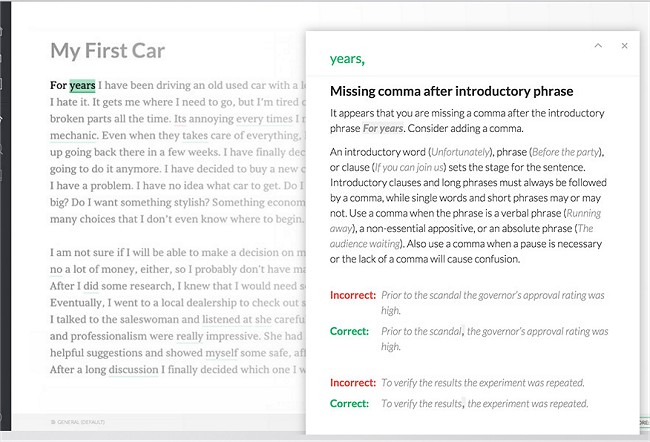


In this example, the subject of the adjective clause is I and the verb is won.

My coach didn’t believe that I won my first wrestling match. Adjective clauses are no different, meaning each one must have its own subject and verb. The main trait of clauses is that they contain both a subject and a verb. 2Īdjective clauses need a subject and a verb
#GRAMMARLY FOR CHROME MOVIE#
The movie Annabelle is the reason why I got rid of my doll collection. Likewise, the relative pronoun why can occasionally be used for adjective clauses, although this usage is rare. We will take either a taxi or bus, whichever comes first. Relative pronouns commonly used for adjective clauses include the following:Īdditionally, the relative pronouns whoever, whomever, wherever, and whichever can also introduce adjective clauses, but these are much less common than those in the list above. However, seeing a relative pronoun in a sentence means there might be an adjective clause. Relative pronouns have many uses if you see one, it doesn’t always mean there’s an adjective clause. I took my partner, who has never seen snow, on a ski trip. The new restaurant, which just opened last month, has already closed down. The reason adjective clauses are also called relative clauses is because they usually begin with relative pronouns. 5 rules for creating an adjective clause: Examples 1Īdjective clauses start with a relative pronoun While normal adjectives are usually just a single word or phrase, adjective clauses always contain a subject and a verb and usually include some other words as well. Often called relative clauses, adjective clauses are a type of dependent clause that describes a noun, just as an individual adjective does. Jabari caught a fish, which was gigantic ! Clauses that modify nouns are called adjective clauses. Sometimes adjectives are single words, like big or beautiful, but other times they are clauses with their own subject and verb. Grammarly helps you communicate confidently Write with Grammarly Adjective clauses definitionĪll adjectives modify nouns.


 0 kommentar(er)
0 kommentar(er)
